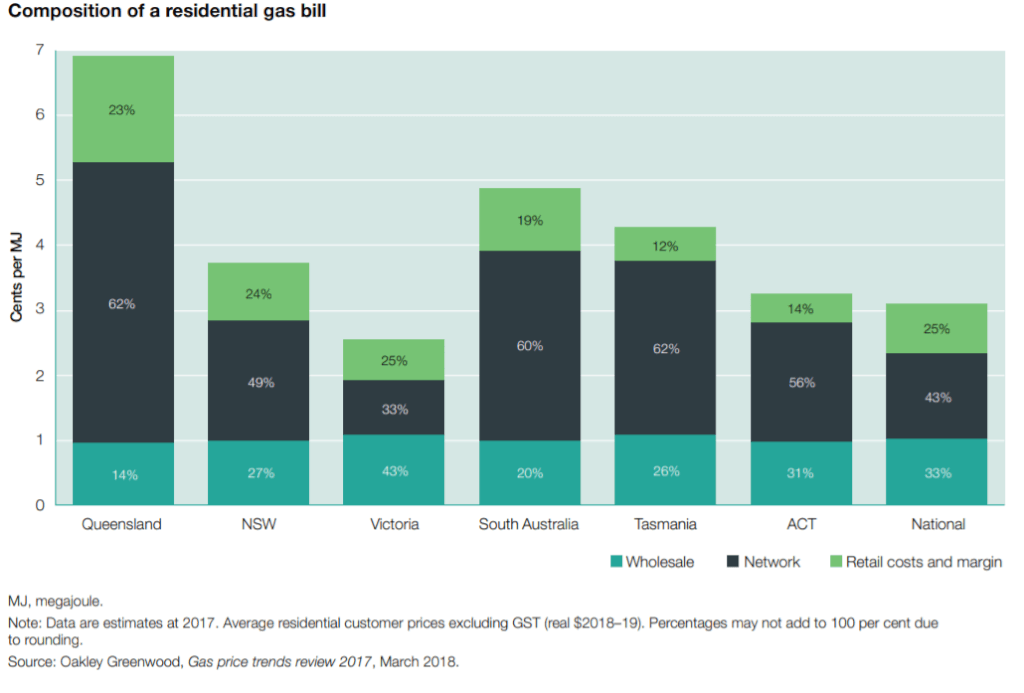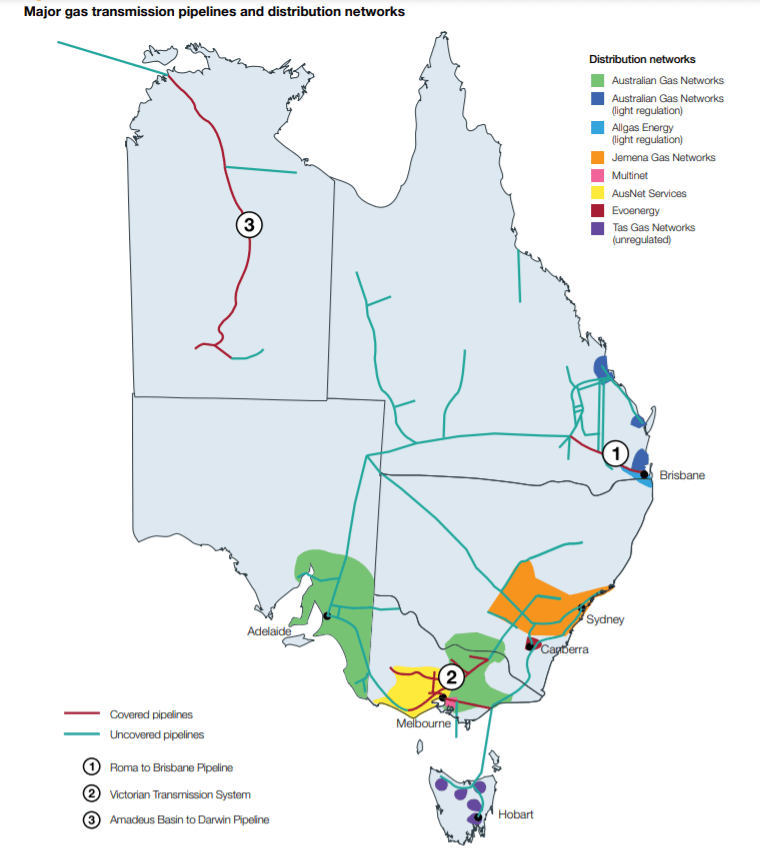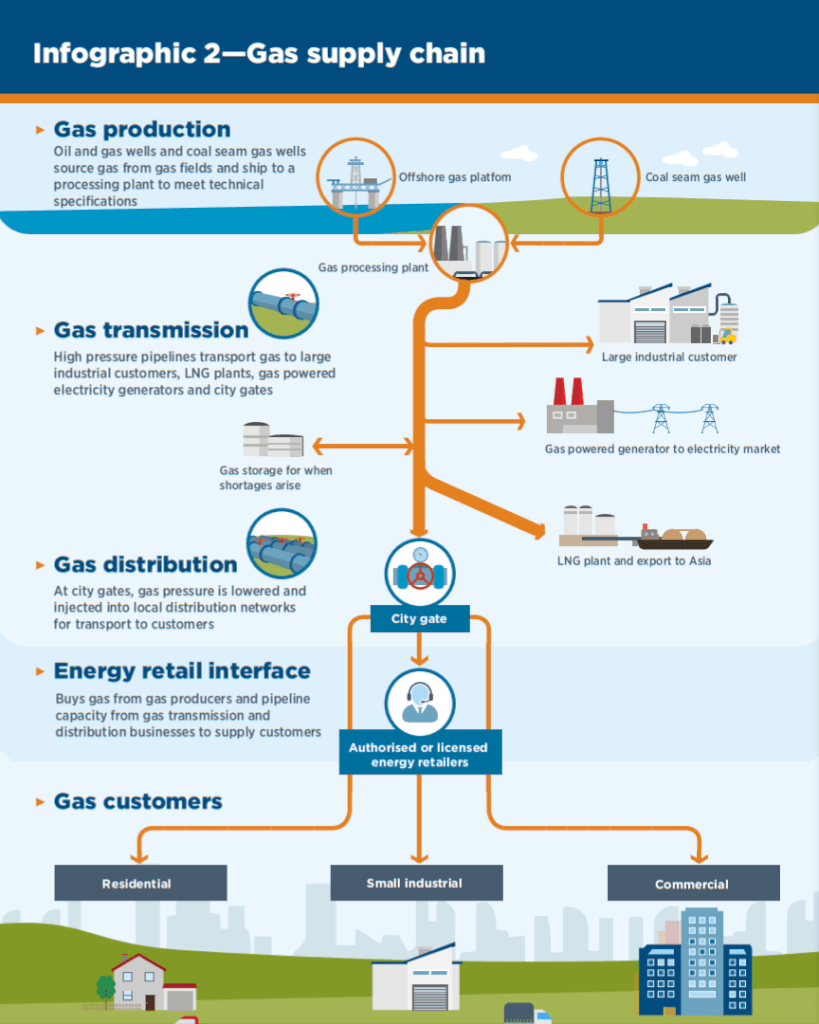Paying too much for gas in Adelaide?
Worried that you’re paying more than you should for retail gas here in Adelaide? If you pay anywhere close to the average price of $892 per annum, then you could save as much as $250 a year on your gas bills.
The primary issue with gas pricing is that unlike electricity – where the Default Market Offer (DMO) caps the price consumers pay on standing offers – gas retailers are free to charge as much as they please to supply you gas. This creates significant cost difference between the cheapest and most expensive contracts. In this article, we look at into
If you are interested in getting the best deal for gas here in Adelaide, read on.
Average Gas Bills in Adelaide (Postcode 5000)
According to Energy Made Easy’s government website, a 2 or 3 person home in Adelaide without a gas heater can currently expect to pay between $630 – $910 per annum for gas. That’s a sizeable $280 price difference based simply on the retail contract you select.
Canstar blue research estimates the average gas bill in Adelaide to be around $223 per quarter or $892 per annum based on estimated annual costs via the Australian Gas Network and yearly gas usage of 11,875MJ. Still, prices will vary depending on your circumstances.
Despite paying some of the highest gas prices in the country, SA gas consumers are generally happy with the price they pay for gas, with only one in every five people (20%) switching retail supply within the last two years.
| State/Territory | Estimated Average Annual Gas Bill |
| Western Australia | $432 |
| Queensland | $688 |
| New South Wales | $736 |
| Victoria | $744 |
| South Australia | $892 |
| Australian Capital Territory | $1,180 |
| Tasmania | $1,468 |
Source: Canstar Blue research, February 2021
Whether you are happy or not with your current pricing, if you haven’t switched gas retailers in the past year, now is the time to compare your price options and potentially save over $250 per annum.
South Australia Gas Network & Cost Factors
The Australian Energy Regulator (AER) regulates covered gas pipelines in all jurisdictions except Western Australia, setting the revenue that network businesses can recover from customers for using their networks.
They enforce the National Electricity Market laws and spot gas markets and monitor the conduct of gas market participants and the effectiveness of competition in the market. AER play a key role in enabling consumers to make informed choices about their energy supplier.
In the State of The Energy Market 2020, AER reports that the composition of retail gas bills is less transparent than electricity due to a lack of systematic annual reporting of gas bill data.

Source: www.aer.gov.au
Based on estimates from the Oakley Greenwood gas price trends review 2017, the cost of your residential gas supply here in Adelaide breaks down as follows: –
- 20 % wholesale cost covers the purchase of gas from production for supply into distribution networks for retail consumers. Seasonal demand and unforeseen supply shortages can increase prices as to the environmental compliance costs.
- 60 % network cost: Responsibility for the infrastructure that delivers gas to your home falls to two gas distributors who owns and operates the gas supply pipelines. They are responsible for inspecting, testing and repair, upgrading and maintaining the mains gas distribution network.
- 19% retail cost plus a margin, although your bill necessarily includes usage and supply charges, we list several other cost factors worth evaluating.
Wholesale Gas Supply
Gas in South Australia comes from several sources. Approximately 60% of natural gas is used to generate electricity, and the rest is distributed to households and businesses via the Australian Gas Network (AGN). Although the demand is high, efforts to reduce reliance on fossil fuels adds uncertainty and environmental compliance costs to wholesale gas pricing.
Gas producers sell gas at wholesale prices direct to retailers under private contracts through the Short Term Trading Market overseen by the independent Australian Energy Market Operator. The wholesale gas supply comes from production facilities in Victoria (VIC), Queensland (QLD) and the Cooper Basin, both SA & QLD.

Source: www.aer.gov.au
Transmission Pipelines that Supply Adelaide & South Australia
The Adelaide metropolitan gas supply arrives via a network of six transmission pipelines
- South East Australia Gas (SEA Gas) 687km underground pipeline from the Iona Gas Plant near Port Campbell (VIC) to the Pelican Point Power Station at Port Adelaide
- Moomba to Adelaide Pipeline (MAPS)
- Moomba to Sydney Pipeline (MSP)
- South East South Australia pipeline (SESA), connects the SEA Gas pipeline to facilities at Katnook/Ladbroke Grove
- South East Pipeline System (SEPS), delivers gas from Katnook to Snuggery and Mount Gambier
- SA Riverland pipeline transfers gas from Angaston to Berri then onto Mildura in Victoria with a connection on the SA Riverland pipeline supply Murray Bridge with natural gas.
The Queensland, South Australia, and New South Wales (QSN) link enables gas to flow from QLD into SA through the MAPS or MSP pipelines.

Source: www.aer.gov.au
Distribution & Network Costs
Delivering gas to over 1.3 million homes, Australian Gas Networks (AGN) is one of Australia’s biggest distributors of natural gas. Here in Adelaide, they supply homes and businesses via a network of more than 7,500km of pipelines.
AGN is part of the larger Australian Gas Infrastructure Group (AGIG), which owns and operates more than 25,000 kilometres of distribution networks and 1,000 kilometres of transmission pipelines throughout Australia.
Natural gas is transferred from the transmission pipelines to the distribution networks at city gate stations. At these stations’ gas pressure is reduced and metered. As natural gas enters your home or business, it is again metered to records your gas usage for billing purposes.
Customers without access to the natural gas distribution network can use liquefied petroleum gas (LPG), commonly available as bottled LPG and widely used for the BBQ.
Gas Retailers
Origin, Simply Energy, Energy Australia and AGL are the dominant natural gas retailers here in Adelaide. Other retailers include Alinta Energy, CovaU, Discover Energy, Dodo, GloBird Energy, Kogan Energy, Lumo Energy, Simply Energy, Red Energy.
If you have been on the same contract for several years, you will most likely save money by switching to a more recent offer (conditions will apply) or switching retailers using a sign-up incentive.
A standard contract pricing is set by the retailers, subject to various conditions set out in the law, including no contract period or exit fees. It is likely you are on a regulated standard contract if you have not switched plans in several years.
A market contract provide variable or fixed rates and varying contract lengths and conditions. With pricing and discounts set by the retailer market contracts are almost always cheaper than standard contracts, provided you meet the requirements of the offer.
Retail Cost Considerations
Ultimately if you think you’re paying more than you should for gas, you probably are. To find the best deals you need to consider the multiple cost factors that contribute to the retail price you pay on each gas bill. Before simply selecting a low price contract, we recommend considering:-
- Usage charges: Some gas suppliers set a single tariff price for all gas usage. Other contracts charge usage in ‘blocks’, meaning prices will vary depending on how much gas your household uses which can work out cheaper for larger households.
- Supply charges: generally a fixed price component, gas supply charges cover the cost to supply gas to your home via the gas mains network. Supply charges account for infrastructure testing and repair, upgrades, and maintenance.
- Hidden fees: Some gas retailers include additional costs, which is why reading contract detail is essential.
- Move-in / new connection fee
- Reconnection fee
- Disconnection fee for moving out of the premises
- Disconnection fee for non-payment
- Late payment fee
- Payment processing fee
- Credit card payment fee
- Customer service: Non-responsive, long wait times and being given the run around will cost you time. Hence, a decent customer service culture is worth supporting when making a purchase decision.
- Location: Geography is a determining factor for the price of natural gas and which networks you have access to. Retail and distributor websites can usually advise if they supply your location simply by entering your postcode.
- Incentives: Rewards and discount incentives are widely available as they provide a means to differentiate product offerings. However, take care not to be lured into a term contract just for the perceived rewards.
- Environmental it’s important to recognise that your purchasing power can help shift the energy industry in favour of more environmentally sustainable energy options, so when investing, please consider supporting retailers that offer renewable energy alternatives.
- Flexible-terms contracts One of the keys to saving on gas retail costs is to avoid lock-in contracts.
- Gas Compliance Certification for new gas connections to your home; remember you will need a gas compliance certificate from a registered gas fitter. If you have any questions or concerns about your residential gas supply or certification, the gas fitting specialists at Precise Services can help.
Over the years, we’ve helped thousands of customers install and repair gas appliances or install gas to their properties. We offer safety testing and gas compliance certification and help you install, maintain and repair gas appliances and hot water systems. For reliable results every time, call the experts at Precise.








